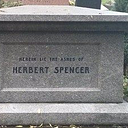My Banned Amazon.com Review of: “Milton Friedman: The Last Conservative”
[I wrote a review where I was critical of Zionism and Amazon.com deleted all my reviews groung back 20+ years including this one]
This is a good book for what it attempts to do. Learning about Milton Friedman is a great way to learn about much of the 20th century and its intellectual currents. As I listened to the book I kept thinking how much better the actual economics and analysis would have been had Jennifer Burns, the author, had first written a biography, not of Ayn Rand, but of Ludwig von Mises. To anyone very familiar with the big Austrians like Mises and Hayek, there is nothing that Friedman has mentioned that had not been said in a far more profound and insightful way much much earlier by men like Mises. The book and in many ways Friedman’s career is reflective of a problem post-Mises-Hayek “economist” have…The ‘Austrians’ already explained everything.. What are “economists” supposed to do?, just say that by the time you get to Mises you already had a total destruction of central planning including how the creation of fake savings via money creation to artificially lower interest rates you are creating the inflation and business cycles and so on. What made Friedman great really comes down to two things, he seemed like a guy who really wanted to get people to overcome the economic fallacies which underpinned all the socialist fallacies, and, very importantly, he was a secular Jew. If a sort of Christian said the exact pro-freedom things Friedman was saying he’d be immediately branded as some right-wing extremist. But, a secular Jew like Friedman, with his sorta friendly yet distinguished demeanor, he really managed to make free market ideology far more palatable. The book mentions how Friedman was better here than the ‘Birchers’. Friedman’s personality, especially given what seemed possible at the time, was really his biggest asset and contribution I would say. At least that is what I came away with after listening to the book given my background. I appreciated the parts where Friedman interacted with the Austrians. With the Austrians like Hazlitt being more pro-free market than Friedman and having sporadic frictions. In the book one learns how Friedman was kinda critical of the mathematization of the field, this is great, but this is just yet another area where the Austrians were first and way better. Austrian school founder Carl Menger:
“I do not belong to the believers in the mathematical method as a way to deal with our science. I am of the opinion that mathematics is mainly a way to give an example or demonstration, but not to do the research itself…Mathematics is not a method for…economic research”
Mises:
“As a method of economic analysis econometrics is a childish play with figures that does not contribute anything to the elucidation of the problems of economic reality.”
“The Econometricians have not the slightest notion of the issues involved.”
Hayek perfectly describes the evolving ‘Priesthood of Scientism’ and their math-based “magic” as he criticizes the:
“…delusion that macro-economics is both viable and useful (a delusion encouraged by its extensive use of mathematics, which must always impress politicians lacking any mathematical education, and which is really the nearest thing to the practice of magic that occurs among professional economists)”
All of Keynesian economics is just total nonsense. The production of wealth requires the consumption of existing wealth-resources and obviously the government creating money by giving it to banks to lend out to businesses does NOT create such wealth. To anyone who really knows what is going on Keynesian economics is as much mythology as established religion. Keynesian economics can be summarized very briefly, Henry Hazlitt accomplishes this in a few sentences when he tells us, “John Maynard Keynes was, basically, an inflationist.”…“In other words, the Keynesian solution to every slow-down in business or rise in unemployment was still another dose of inflation.” Again, to an ‘Austrian’, a good 30% of the book’s content, the various names in the mainstream US economics bureaucracy, was kinda boring, I found it similar to perhaps learning about Soviet economists or influential cardinals in the Catholic bureaucracy. If I properly recall did NOT mention anything about Friedman’s potential help in getting Israel to turn away from Socialism to Capitalism during his visits with Menachem Begin’s government. That is something I would have loved to have learned more about.
So overall a good book about a very important and influential man.
Good overview of one of freedom’s best popularizers.
